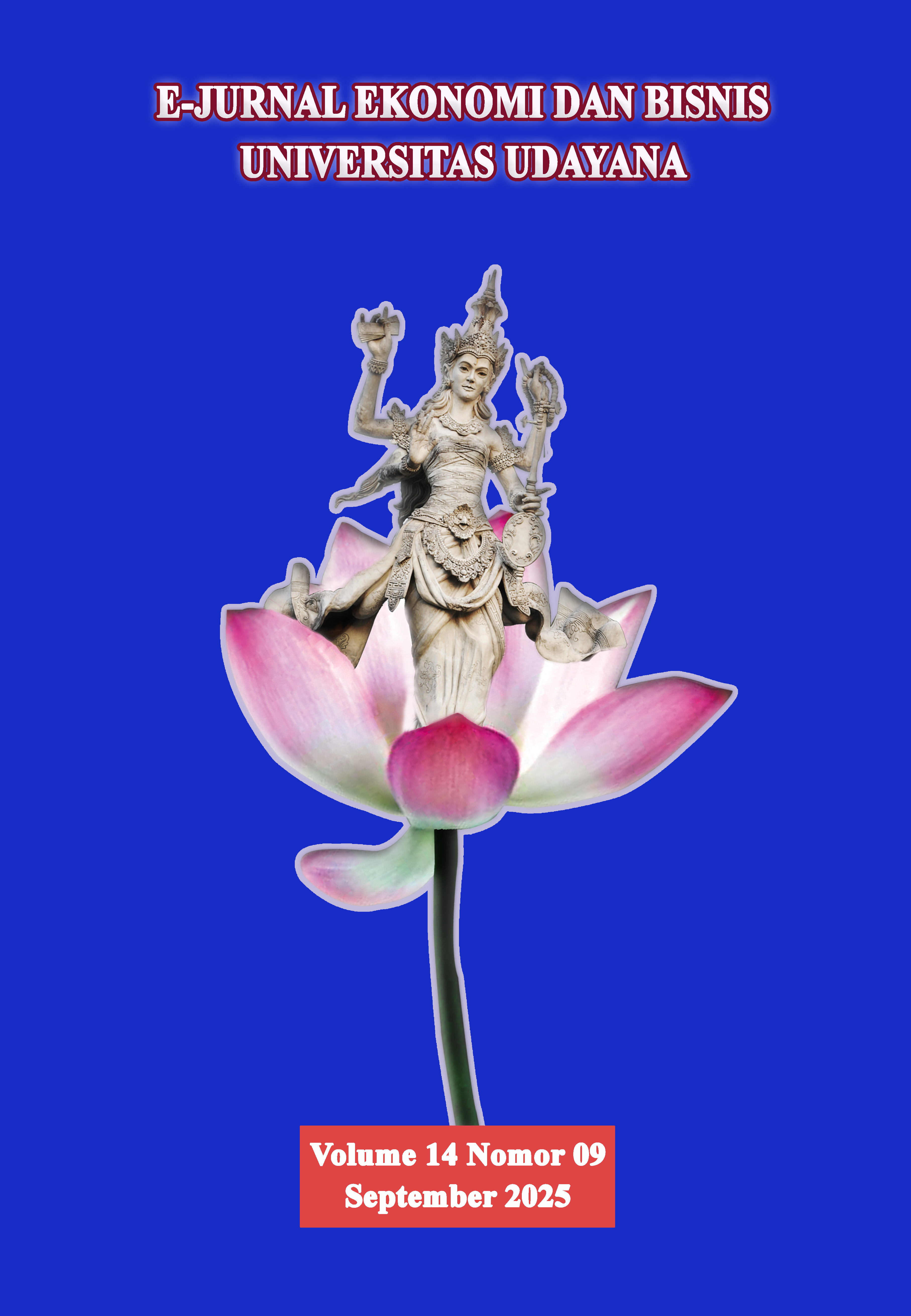INFLUENCE OF LITERACY, ATTITUDE, AND INTENTION ON STUDENT FINANCIAL BEHAVIOR
DOI:
https://doi.org/10.24843/EEB.2025.v14.i09.p07Kata Kunci:
Behavioral Intention, Financial Attitude, Financial Literacy, Financial Management BehaviorAbstrak
This study examines the influence of financial literacy and financial attitude on the financial management behavior of Generation Z students in Bengkulu and North Sumatra, with behavioral intention serving as a mediating variable. Using the Theory of Planned Behavior (TPB) as a framework, the study employed a quantitative, cross-sectional survey involving 271 purposively selected students. Data were analyzed using Partial Least Squares Structural Equation Modeling (PLS-SEM).The findings reveal that financial attitude has a significant direct effect on financial management behavior, while financial literacy does not directly influence behavior. However, both financial literacy and financial attitude significantly affect behavioral intention, which in turn positively influences financial management behavior. Additionally, behavioral intention mediates the relationship between financial literacy and behavior, as well as between financial attitude and behavior. These results highlight the importance of behavioral intention as a key pathway through which financial literacy and attitudes shape actual financial practices. Therefore, financial education initiatives should not only focus on increasing knowledge but also on fostering positive financial attitudes and strengthening students’ intentions to manage finances responsibly. Integrating motivational components and practical applications into financial education programs can enhance students’ ability to translate knowledge and attitudes into consistent financial behavior. This has important implications for educators and policymakers aiming to improve financial well-being among youth in Indonesia.
Unduhan
Diterbitkan
Terbitan
Bagian
Lisensi
Hak Cipta (c) 2025 Dias Agustin Banurea, Berto Usman (Author)

Artikel ini berlisensi Creative Commons Attribution 4.0 International License.














